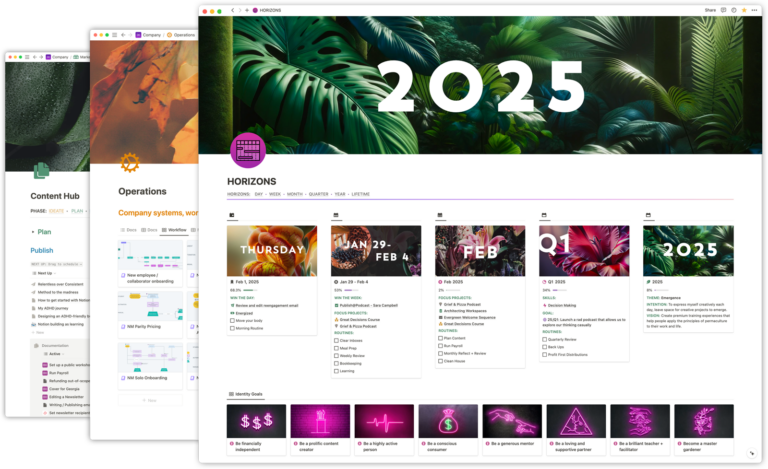At Notion Mastery we understand that not everyone earns a salary in US Dollars (USD), which is why we offer discounts based on country of residence to enable parity pricing of our course.
As Canadians we feel this pain too as almost everything we buy to run our programs is in USD. We spend a lot on US software to run Notion Mastery.
While there are apps out there that will manage parity pricing for you, they did not offer us enough flexibility or customization (and, in some cases, were not supported or maintained). Because of this we established a customized system using Excel, Tally, Notion, Spark and Thrivecart to manage our parity pricing.
Here’s a breakdown of that system:
Ben set up an Excel spreadsheet for us that:
- Pulls in current currency data
- Calculates the purchasing power % for each currency
- Recommends a % discount based on purchasing power
- Compares the recommended discount to the current discount that we are offering

On a quarterly basis we review our current discounts vs the recommended discounts and make adjustments as needed. This data informs the discount % that is set for parity coupons in Thrivecart, our cart provider, as well as on the list of Parity Eligible Countries that we share from our sales page to help folks determine if they are eligible for a discount or not.
This public Notion page lists all the countries that are currently eligible for parity pricing, and links to the Tally form we use for parity pricing applications.
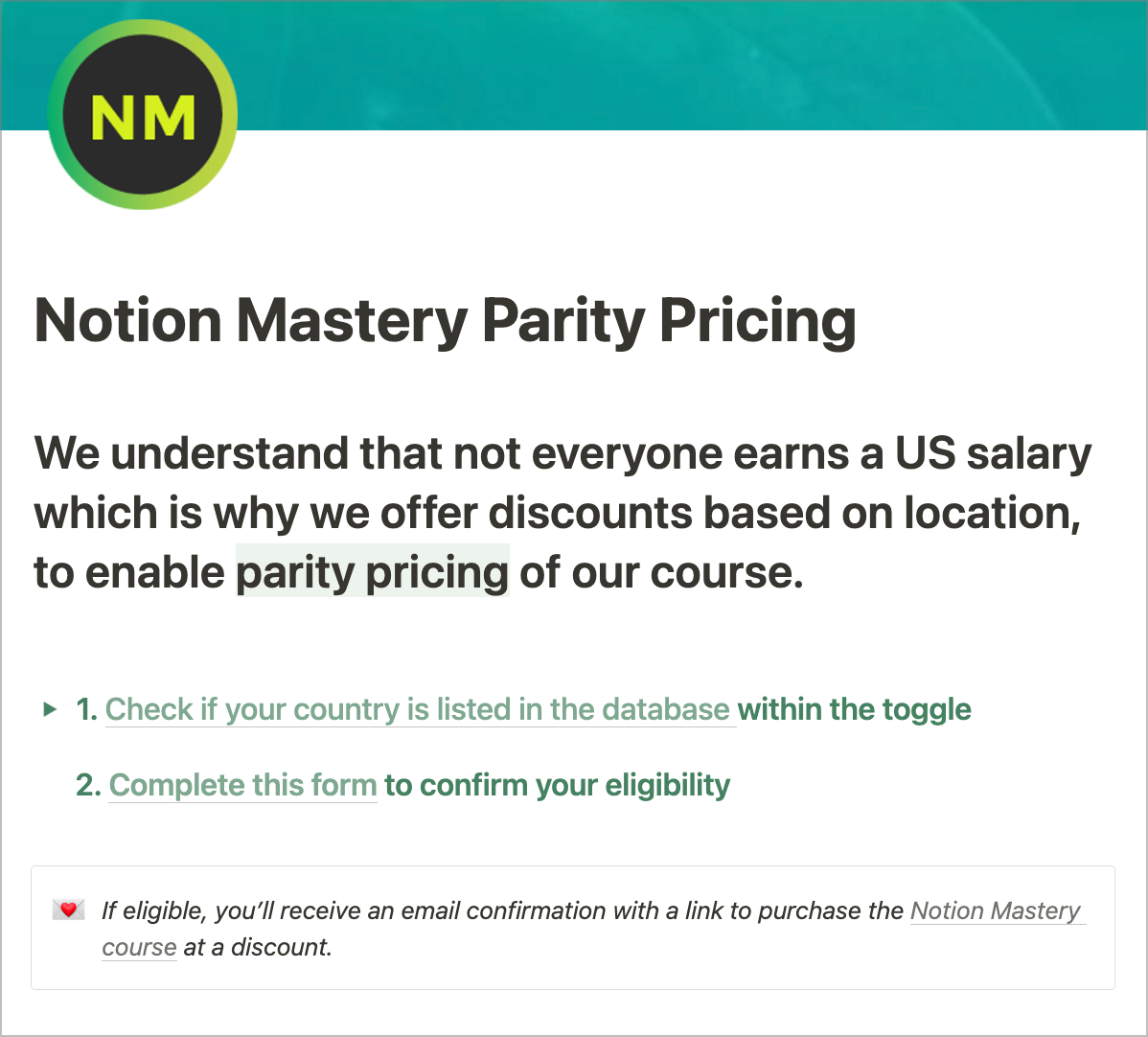
The Tally form asks folks to provide their name, email address, and address of residence. Anyone applying is also required to upload an image of documentation that displays the name and address they’ve provided, so our team can verify their eligibility for parity pricing.

The applications are sent from Tally into a Notion database where we can review them.
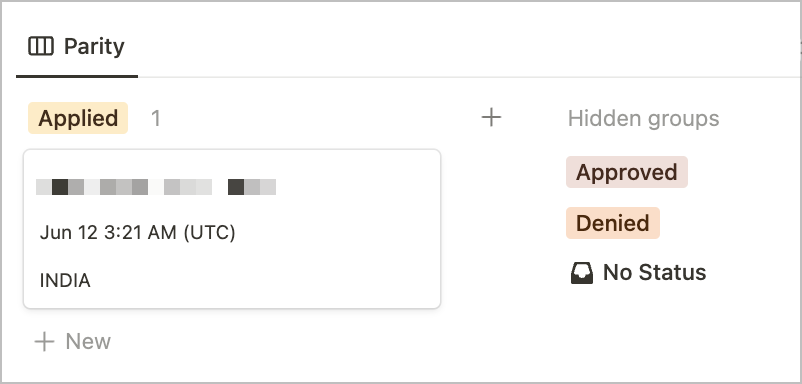
We review the parity applications in Notion weekly. Occasionally folks from non-eligible countries apply, in which case we send them a quick email to thank them for their application and let them know their country is unfortunately not eligible. Most of the time the applications we receive are from eligible countries. Our team reviews the supporting documentation included in the application, comparing the name and address in the image to the name and address provided in the application form. If everything matches up, we then do a quick search of our own parity pricing database to confirm the percentage discount the applicant is eligible for.
Once we’ve confirmed the percentage, we use templates stored in Spark to email the applicant their discount code.
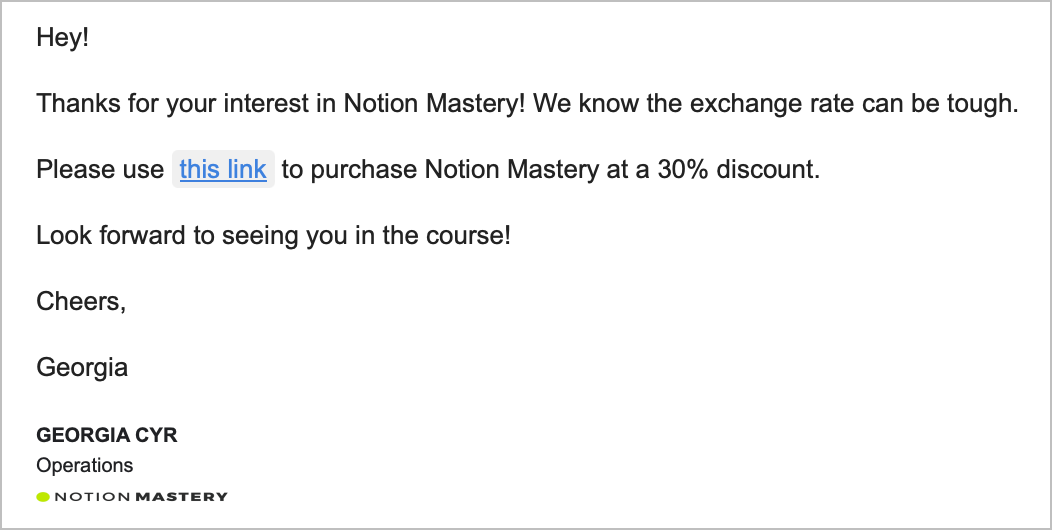
The prospective student can then use the link we provide to purchase Notion Mastery at a price that is more accessible in their local currency.
Whenever new sales come through, we relate a student’s sale to their entry in the student database (you can learn more about all the databases we use to manage our course ops here). If their sale has used a parity pricing coupon, we also relate the student’s parity application to their student profile, which gives us another layer of review and security that our coupons are not getting shared fraudulently.
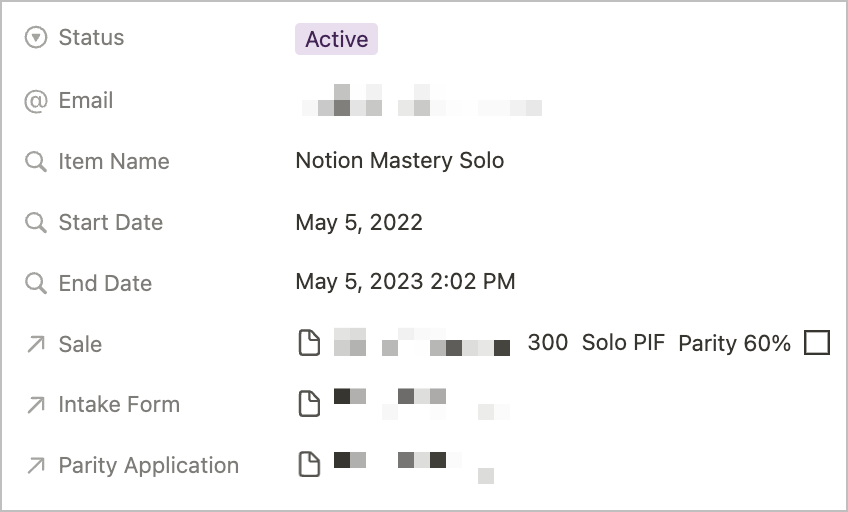
Coupon codes are regularly cycled to prevent misuse and on the rare occasion that someone misuses a coupon, we’ve set a sensible cap on discounts at 50% off. This allows us to continue to deliver the program but remain generous for as many students as possible.
Offering parity pricing is an important step in making products more accessible to people around the world. Since we implemented parity pricing in 2021 this process has helped hundreds of students access Notion Mastery at a price that is more affordable in their local currency. If you’re considering implementing parity pricing for your course or product, we hope our process and tools can provide some guidance and inspiration for your own setup.

 Notion tips in your inbox
Notion tips in your inbox